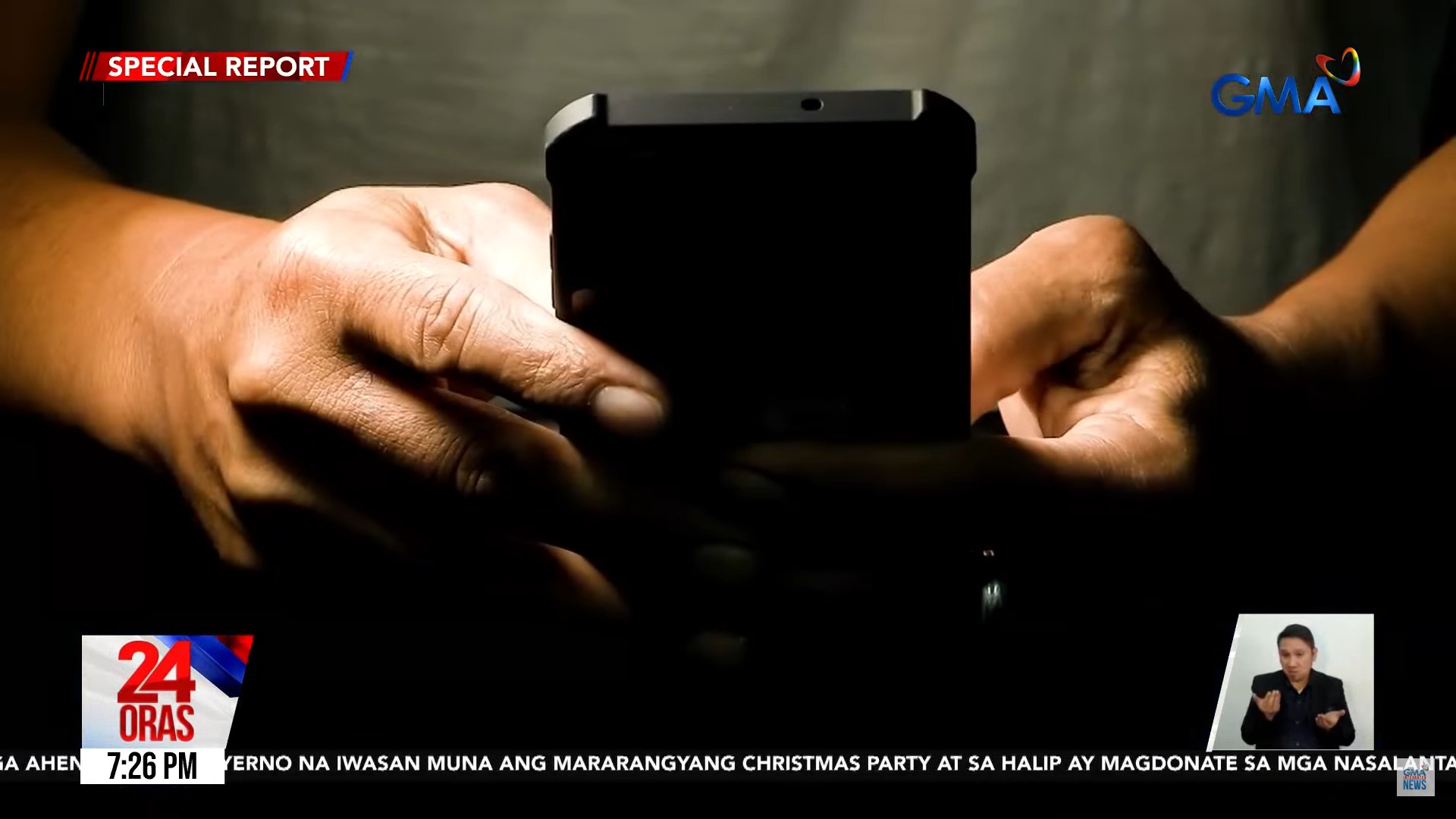Anti-disinformation advocate warns sharing fake news online has consequences

An anti-disinformation advocate warned that even a simple sharing of false information on social media could penalize you even if you are not the original source.
According to Mav Gonzales’ special report in 24 Oras on Tuesday, the majority of adult Filipinos still find it difficult to spot misinformation online.
“Even yung original author alam niyang mali, at tinake down niya na yung post, pero ikaw sinave mo at paulit-ulit mong pino-post pa rin, doon clear na wala na yung defense mo essentially na ‘ay hindi ko alam na bawal pala’ o ‘masama pala ‘yon,’” said lawyer Jam Jacob, legal and policy advisor at Foundation for Media Alternatives.
(Even if the original author is aware that the intention of the post was wrong and it was already taken down, but you still saved it and repeatedly posted about it, it’s very clear that you can no longer defend that you are unaware that it’s wrong or it’s bad to do that.)
“Kung aware ka na libelous yung statement na ‘yun, doon siguro maaaring ma-hold liable,” he added.
(If you are aware that it’s a libelous statement, you can be held liable for that.)
As of January 2024, there are 86.75 million active social media users in the Philippines.
But a survey conducted by the Social Weather Station in 2022 showed that at least 51% of Filipinos cannot distinguish between factual information and fake news.
Actor Mon Confiado was just one of the recent victims of fake news online after a content creator posted on Facebook that he caused a scene inside a grocery store.
The said post claimed that the actor was arrogant to the content creator and berated the cashier. It also alleged that Confiado almost failed to pay for his purchases at the establishment.
The said post is said to be a “copypasta”, an online post that was supposed to be funny and meant to be copied and pasted on social media.
“Hindi pa rin inalis yung post, at nag-post pa na parang, ah, iniinsulto pa ako at ang mga Pilipino na hindi marunong tumanggap ng 10-year-old joke,” said Confiado. “Walang takot na gagamitin ‘yung pangalan mo at litrato mo ng walang paalam ng ida-drag ka pa sa isang hindi magandang sitwasyon.)
(He did not delete the post, and the one who posted it even insulted me and others that we cannot understand a 10-year-old joke…There was no fear in using one’s name and photo, and you will be dragged into a bad situation.)
Confiado filed a cyber libel complaint against the content creator last August 12.
“Sasabihan ka ng isang kwento na hindi totoo, na negative, at pag sinita mo, sasabihin ‘joke’. So, sabi ko, parang hindi na yata tama ang nangyayari sa social media. At laganap na laganap na talaga yung mga fake news na ‘yan,” the actor said.
(You will be told of a false narrative or something negative, and when you call them out, they will simply say that it was a joke. So I thought that there’s really something wrong now in social media. The spreading of fake news is prevalent.)
The content creator later apologized and has deactivated his social media account.
Even news anchors and reporters have become victims to fake advertisements where their faces are being used for products they don’t endorse.
Former Philippine National Police chief General Benjamin Acorda Jr. and Armed Forces of the Philippines Chief of Staff General Romeo Brawner Jr. were also victims of fake news after a vlog made the rounds online claiming the two officials were plotting a destabilization attempt against President Ferdinand Marcos Jr.
Acorda filed a case against the suspect behind the fake video.
From January 1 until August 8 of this year, the PNP Anti-Cybercrime Group has so far received almost 3,800 complaints in connection with fake news.
But the PNP said that there is no law at present that penalizes the spreading of fake news. Although the Anti-Cybercrime Law can cover such cases with the filing of a cyberlibel complaint.
“Pinakamagandang gawin diyan, ang lagi naming advice sa mga victims, mass reporting para mapansin ng Facebook,” said P/Col. Jay Guillermo, PNP Anti-Cybercrime Group cyber response unity chief.
(What we usually advise the victims is to mass report the post so that Facebook can take action on it.)
Under the law, cyberlibel violators face up to 8 years of imprisonment, a fine of P40,000 to P1.5 million, or both.
Meanwhile, computer-related identity theft could be punishable by up to 12 years of imprisonment, at least P200,000 fine, or both.
“Unawain natin o appreciate talaga natin na yung karapatan natin na magpahayag ng sarili natin online, as much as may karapatan tayo gawin yan offline, may kaakibat na responsibilidad,” said Jacob.
(Let’s understand or appreciate that our right to express ourselves online, even though we also have the right to do that offline, also comes with a responsibility.) —Vince Angelo Ferreras/RF, GMA Integrated News




